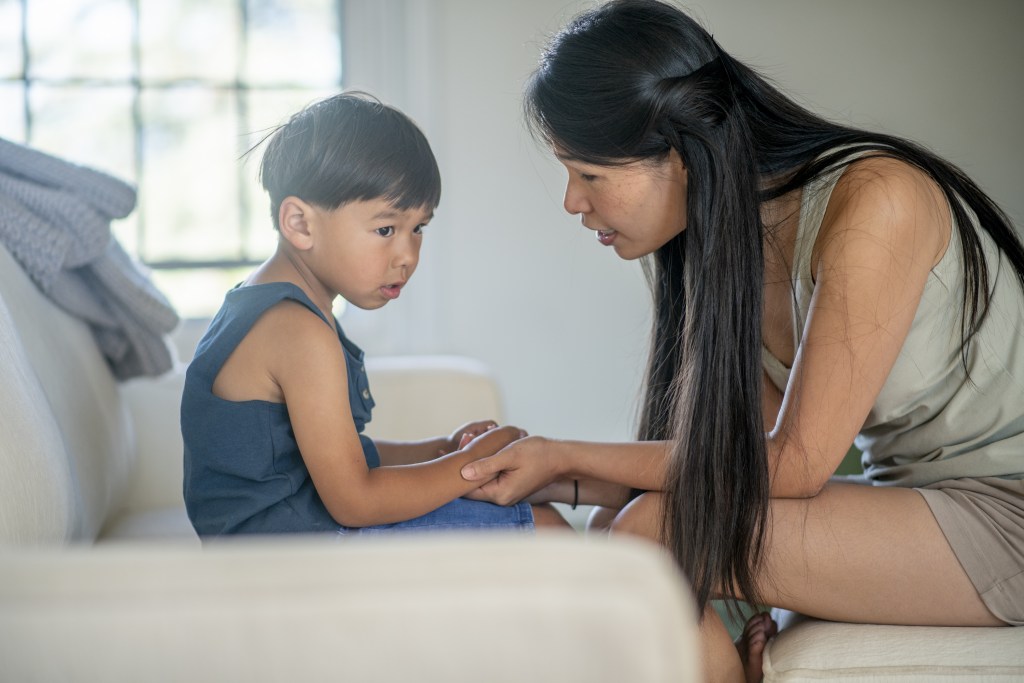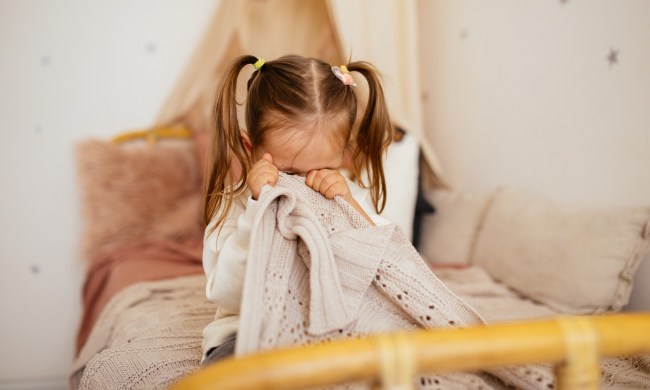Parenting a toddler is not for the faint of heart! While it’s so fun to watch your child as they transition from babyhood to toddlerhood, there are also many developmental changes that happen so quickly that they can often be overwhelming. One thing that is very common among toddlers and so frustrating for parents is biting. Why toddlers bite is a loaded question with many different answers.
Biting is very normal behavior for toddlers but that doesn’t make it acceptable. When children are at an age where they struggle to express their feelings without the language skills needed to do so, they sometimes act out, and biting is often how they express their emotions. Try these tricks if your toddler won’t stop biting and learn how to help him express his feelings in a healthier way.

Why toddlers bite
As frustrating and embarrassing it can be if your toddler bites you or someone else, it is a pretty normal developmental behavior. Nemours Kids Health explains that some toddlers bite simply to explore new toys or environments or as a result of teething, but when they begin to understand the impact of their biting they may begin to do it to simply get a reaction. Toddlers often struggle with expressing themselves, especially if they are just learning to talk and don’t yet have the words to adequately relay their emotions. Biting is often the result of frustration, anger, and even excitement when a child can’t verbally express how she’s feeling.
Sometimes toddlers also bite as a defense mechanism, especially if they’re playing with another child who takes a toy from them or pushes them. Toddlers don’t always have a great grasp of self-control and biting is often a result.
What to do
Although biting is a very normal behavior it is one that should always be addressed and taken seriously. If you see your child bite another child or yourself, the first thing Healthline suggests is to remain calm, because responding with anger may agitate your toddler. Experts suggest correcting your child and simply reinforcing the message that biting is not allowed. Explain that biting hurts and then calmly remove your child from the situation where the biting occurred. The child will learn that the consequence for biting is the inability to continue participating in whatever activity led up to the incident. If you can’t remove your child from the situation then it’s important to be vigilant in monitoring him so the biting doesn’t continue.
Dr. Aubyn Stahmer, a clinical psychologist at Children’s Hospital, in San Diego explained to Parents that encouraging your toddler to use her words to express herself is also helpful in this situation. “Let your child know that when she gets angry or upset, there are alternatives to biting. She can say, ‘I don’t want to’, or ask you for help in getting her message across.” Children who bite are often overwhelmed and Dr. Stahmer suggests validating their feelings while also correcting them.
If the biting persists and becomes a habit, Healthline suggests using timeouts, but consistency is key. Every time your child bites he would need to sit in a timeout, typically for 1 minute for each year old. Timeouts help give children a few minutes to sit separately from others, calm down, and find a little time away from things that may have triggered them.

How you can help
Biting is a frustrating behavior for parents and toddlers alike, so if your child is making a habit of biting others, parents may be able to look for cues to stop the biting before it starts. The National Association for the Education of Young Children suggests observing your child for signs that may trigger her biting. Maybe she gets overwhelmed in group play or struggles with sharing. In these situations, you as a parent would then know you need to stay close to help guide her behavior.
Reminding children to properly express their feelings also helps them learn that biting isn’t acceptable behavior. Suggesting other ways to help them communicate is always a useful way to help children feel empowered.
Biting is an extremely common behavior for toddlers, so while you may be mortified that your little one chomped down on his friend during what you thought was a happy playdate, it’s not really something to worry too much about. Biting is a phase that most toddlers grow out of as they get older and their speech develops. If you notice your child is continuing to bite as he gets older and enters preschool, it may be worth reaching out to your doctor and having a discussion. There are also lots of books on the subject if you want to read more about it. For the most part, biting is simply how your toddler is choosing to communicate her emotions and as long as you keep consistently correcting her and reminding her that biting is not acceptable, your toddler will pass through the biting phase quickly.



